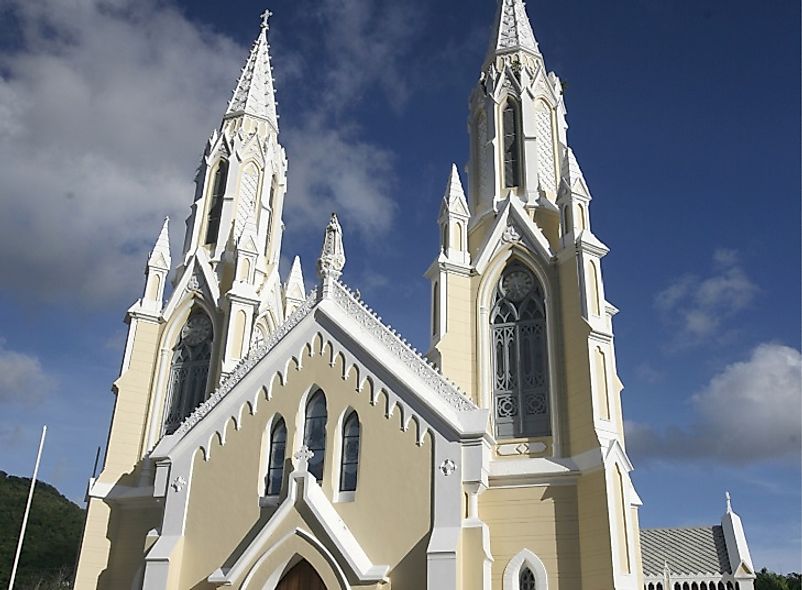Religious Beliefs In Venezuela

Venezuela is a South American country located along the Caribbean Sea. It has a diverse population of 31 million whose ancestry has been influenced by the Spanish colonial era and European immigration that took place through the mid 20th century. Today, the major ethnic groups in the country are mestizo, white, black, and indigenous. In the same way that colonialism and immigration has affected the ethnicities found in the country, it has also affected the religions practiced here. This article takes a look at the major religious beliefs of Venezuela.
Religious Beliefs in Venezuela
Roman Catholicism
As is common throughout Latin America, Catholicism is the most widely practiced religious belief system in the country. Approximately 71% of the population identify as Roman Catholic. This religion was introduced during the colonial era, but the Church did not gain as much influential power here as it did in nearby countries. It did, however, contribute to the educational system. Prior to the government of Hugo Chavez, the Catholic religion lost followers to the Protestant religion. During the rule of Chavez, the government took control of Catholic schools and removed religious education from public schools. Both of these events have resulted in a smaller percentage of Catholic followers compared to other Latin American countries.
Protestant Christianity
The second most common religious identity in Venezuela is Protestant Christianity. This denomination has a following of 17% of the population. The majority of these individuals are Evangelicals who have converted from the Catholic religion. The Protestant religion has faced some hardship within the country due to political constraints. Prior to Chavez, Christian TV and radio broadcasts were illegal. In 2005, however, the government suspended visas for missionaries after a famous Evangelical made comments about assassinating the President of Venezuela.
Irreligion
Another 8% of the population identifies as being irreligious. This can be broken down into 6% as Agnostic and 2% as Atheist. Often, a country’s movement toward secularization goes hand in hand with urbanization and increased educational attainment, which seems to be the case in Venezuela. These percentages began to grow in the early 21st century as the nation began to modernize.
Santeria
Santería has a smaller following of around 1% of people in Venezuela. This religion developed under Spanish rule in the Caribbean among West African descendants. It is believed to be a fusion of African and Native American traditional religions with Christianity, particularly Catholicism.
Other Beliefs
Other minority religions practiced in the country include Islam, Buddhism, Judaism. Together, they make up around 3% of the population. Islam is practiced by 95,000 people of Syrian and Lebanese descent. Buddhism is practiced by 52,000 people of mainly Chinese, Japanese, and Korean descent. Judaism is practiced by about 13,000 people living principally in Caracas.
Religious Freedom in Venezuela
The Venezuelan Constitution protects the rights regarding freedom of all religious practices as long as those practices do not interfere with public decency and order or infringe upon the religious rights of others. Despite this, the country has experienced instances of religious persecution. Anti-Semitism has been expressed on both public and private media channels. Evangelicals report obstacles to registering their religion with the government. Additionally, Mormons have been denied access to their house of worship because it has been occupied by flood victims. As of 2014, the US Department of State was unsuccessful in its attempts at holding a discussion with the government concerning issues of religious freedom.
Religious Beliefs In Venezuela
| Rank | Belief System | Share of Venezuelan Population |
|---|---|---|
| 1 | Roman Catholic Christianity | 71% |
| 2 | Protestant Christianity | 17% |
| 3 | Irreligious | 8% |
| 4 | Santeria | 1% |
| Islam, Buddhism, Judaism, and Other Beliefs | 3% |







